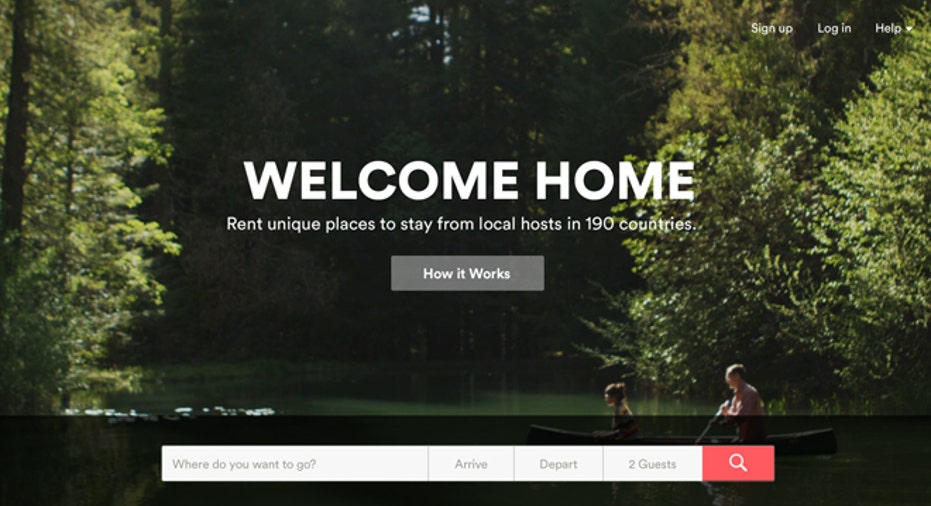The ‘Sharing Economy’ Is Way Overhyped

According to PriceWaterhouseCoopers, the so-called “sharing economy” is getting ready to explode from $15 billion today to $335 billion by 2025. In case you’ve never heard the term, it’s when people or small businesses rent services or resources to each other, usually through mobile apps. Here are some examples:
– UberX and Lyft match passengers who need rides to drivers and their cars.
– Airbnb allows people to rent vacation units or even rooms in their homes for a night or more.
– Kitchit and Kitchensurfing helps you find a personal chef to cook you dinner or cater your party.
And if you really need to find a bathroom on the fly, there’s even an app for that.
There’s no doubt that some of these companies are disrupting age-old industries that could use a little shakeup. More competition and innovation is always better. And while their on-demand mobile apps provide a new level of convenience and differentiation, I think the “sharing” aspect is way overhyped.
Consider this. Aside from the app, most of the services are really no different than say hiring a handyman or a contractor, calling for a cab or limo, or renting a room at a B&B. There’s certainly nothing new about any of those models; they’ve been around forever.
Meanwhile, the sharing aspects are barely a step up from pawnshops, hitchhiking, dumpster diving and crashing at a friend’s house. The rewards are questionable and the risks for those on both sides of the equation are not necessarily worth it.
Take transportation, for example. What separates Uber from other taxi and limousine services is its seamless and reliable user experience. It’s a top-down reimagining of an industry from the standpoint of software, logistics, recruiting and operations. That’s why it’s disruptive. That’s also why it’s valued at $41 billion.
The only aspect of Uber’s business that’s truly “sharing” is uberX. I don’t know about you, but when I need to get somewhere, I don’t want some guy in an old beater. I can’t imagine it’s much of a career opportunity for the driver, either. Besides, they’re all gone when CEO Travis Kalanick can replace them with self-driving cars.
On the home front, Airbnb’s mobile app may have given legitimate B&Bs and vacation rentals a new and improved sales channel, but those models have been around forever. More importantly, owners approached them as serious businesses.
Meanwhile, there are all sorts of legal and financial risks associated with novices casually renting their home or a room in it. If you’ve never seen the nightmarish movie Pacific Heights, you owe it to yourself to check it out. Screening for squatters and problem renters is anything but an exact science.
On the flipside, I can see how the under 24 crowd – the biggest age group for the sharing economy, according to PWC – doesn’t mind camping out in other people’s homes. When I was that age I had no problem crashing wherever to save a buck. But since landing a real job a few decades ago, I’ve opted to rent from pros.
The true benefit of Uber in transportation and Airbnb in hospitality – their competitive advantage, if you will – is the on-demand convenience that comes from their software and logistics. It has nothing to do with the limited sharing aspect of their businesses, which I actually see as a downside. The same is true of all the other sharing markets.
As for the environmentally friendly “sharing is caring” meme we keep hearing, that may be a cool sound bite but I’m just not seeing it. None of these businesses keep homes and cars out of the junkyard. And I think it’s more “caring” to give your second-hand stuff to charity than to try to make money off it.
Perhaps there’s a B2B component to the sharing economy – notably manufacturing and warehousing – but we already have a name for that. It’s called outsourcing and it’s been around a very long time. The same goes for renting office space. There’s nothing new there.
Some say the sharing economy is the next big thing. That it’s fun, efficient and affordable. I say the convenience and differentiation provided by on-demand businesses with mobile apps and globally scalable logistics is a big thing. That’s what’s disruptive. As for the sharing aspect, that’s all media hype and fodder for the crowd crowd.



















